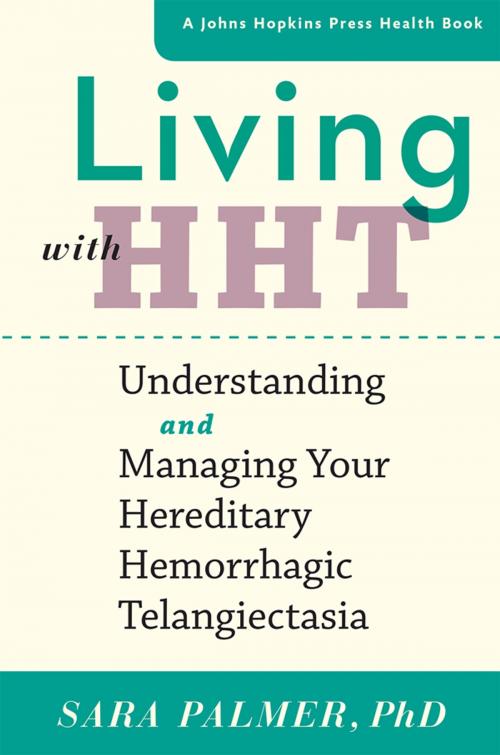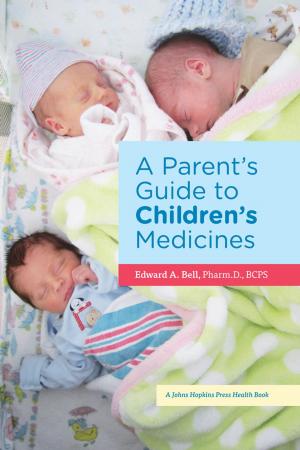Living with HHT
Understanding and Managing Your Hereditary Hemorrhagic Telangiectasia
Nonfiction, Health & Well Being, Health, Ailments & Diseases, Genetic, Medical, Medical Science, Genetics| Author: | Sara Palmer | ISBN: | 9781421423913 |
| Publisher: | Johns Hopkins University Press | Publication: | December 1, 2017 |
| Imprint: | Language: | English |
| Author: | Sara Palmer |
| ISBN: | 9781421423913 |
| Publisher: | Johns Hopkins University Press |
| Publication: | December 1, 2017 |
| Imprint: | |
| Language: | English |
Hereditary Hemorrhagic Telangiectasia (HHT) is a rare genetic disorder that causes blood vessel abnormalities in the nose, skin, gastrointestinal tract, lungs, brain, and liver. Nosebleeds are the most common symptom of HHT, but abnormal vessels in other organs, if they are not diagnosed and treated, can lead to serious medical complications, including stroke, hemorrhage, anemia, and brain abscess.
Psychologist Sara Palmer, who has HHT herself and is an expert in helping people cope with health conditions, draws on current research as she thoroughly describes the symptoms of HHT, explains how the diagnosis is made (and often missed), and details treatment options. While addressing the medical aspects of HHT, Palmer also reveals how people affected by the disorder can maintain their emotional health, take care of family members, and live life as fully as possible.
Enriched with illustrations, personal stories of people living with HHT, a glossary, and contact information for the HHT Centers of Excellence (which provide coordinated medical treatment for people with the disorder), Living with HHT is a complete resource for individuals with HHT and their families. This guide is also essential for health professionals seeking more information about this underdiagnosed disease.
Hereditary Hemorrhagic Telangiectasia (HHT) is a rare genetic disorder that causes blood vessel abnormalities in the nose, skin, gastrointestinal tract, lungs, brain, and liver. Nosebleeds are the most common symptom of HHT, but abnormal vessels in other organs, if they are not diagnosed and treated, can lead to serious medical complications, including stroke, hemorrhage, anemia, and brain abscess.
Psychologist Sara Palmer, who has HHT herself and is an expert in helping people cope with health conditions, draws on current research as she thoroughly describes the symptoms of HHT, explains how the diagnosis is made (and often missed), and details treatment options. While addressing the medical aspects of HHT, Palmer also reveals how people affected by the disorder can maintain their emotional health, take care of family members, and live life as fully as possible.
Enriched with illustrations, personal stories of people living with HHT, a glossary, and contact information for the HHT Centers of Excellence (which provide coordinated medical treatment for people with the disorder), Living with HHT is a complete resource for individuals with HHT and their families. This guide is also essential for health professionals seeking more information about this underdiagnosed disease.















